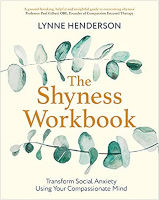
Image by StockSnap
Narrated by Marie T. Russell.
Watch video version on InnerSelf.com or on YouTube
When people speak of compassion, they mostly are referring to having compassion for others, for those less fortunate than themselves. And this is definitely a wonderful practice, however, in order to be able to practice compassion towards others, we may first have to learn to be compassionate towards ourselves.
Changing Self-Beliefs and Judgments
We all have beliefs about ourselves... whether we think we're smart or not, good-looking or not, likeable or not, etc. However, these beliefs are more than just a simple belief, they are usually a severe judgment on ourselves, It's not just that we think we're not "something or other", but really that we believe we are not good enough.
These thoughts keep us from loving and accepting ourselves. So perhaps the place to start is to have compassion for our lack of whatever it is we think we lack.. certainly lack of perfection. Cut yourself some slack. You're not perfect! So what! No one is perfect! Even those who may appear to be perfect have their own inner doubts and demons.
Have compassion for the imperfect person that you are, and give yourself room to grow by changing your beliefs and judgments about yourself. Be compassionate to your human self with its human failings. You are, after all, a work in progress.
Self-Monitoring or Paying Attention
The thoughts that run randomly in our head can be our worst enemy. Yet, if we don't know what harmful thoughts are running around in our head, how can we change them? So the first step in developing compassionate thinking is discovering what is going on with our "mental chatter".
We start by observing what we think, say and do. Sounds easy? Not always. As we get involved in our day-to-day activities, we tend to let our thoughts go on "auto-pilot mode", and that allows "monkey mind" to take over. It can lead us to thoughts and emotions that are not only uncompassionate but sometimes downright harmful.
Lynne Henderson, in The Shyness Workbook, suggests setting a timer at random intervals to spot-check where your internal focus is at that time. Remember to use self-compassion and kindness when you do self-monitoring. The goal is to become aware, not to develop feelings of guilt or shame. Just stopping to pay attention to where your mind is at any given time, helps to bring you back to the present moment.
Alternatives to Threat-based Thoughts
Our mind is very good at imagining scenarios. For example, you call a friend and they don't answer, and you know very well they are home. So your mind jumps to the conclusion that they don't want to talk to you and are ignoring your call. The negative assumption is a threat to the harmonious relationship you've had, as well as to your peace of mind.
So, one way out of this dilemma is to come up with other possible reasons why your friend did not pick up when you called. Maybe they were in the shower. Or maybe they decided to take a nap and turned their phone off. Or maybe they are in the middle of an argument, or a love session, with their spouse, and didn't want to answer the phone. There are many possibilities.
So the next time your mind comes up with a threat-based thought, like I'm going to get fired for this, or that person doesn't like me, or whatever, stop and take the time to come up with alternative reasons why the person is behaving in the way they are. And then ask yourself if those are not just as plausible as the original fear-based thought. Entertain possibilities and alternatives that are more supportive of you and the other people involved.
Asking Questions with Compassion
A way to get out of our fear-based thoughts is to ask ourselves questions. For example when your mind comes up with worst case scenarios, ask yourself: "do I really believe that .........." or "does that sound realistic?" Lynne Henderson suggests you ask yourself the following questions in a kind, caring, and compassionate voice, perhaps as the voice of your compassionate "ideal self".
"Do I know for certain that ........."
" What is the actual likelihood that .........."
"I've coped in the past. Do I know for certain that I can't cope now?"
"What is the worst that could happen? How bad is that?"
These questions can help you change the direction your mind and fears may be taking you. It's important to go through the process compassionately and lovingly in order to get past the blame, judgment, and shame.
The Compassionate Teacher in Your Head
We all have inner "critics" and detractors. These are the voices inside our own head that tell us we've messed up, we didn't live up to expectations, whether that of others or of our own self.
We also have the voice of an inner teacher. Some teachers, as you probably know by experience, are harsh and critical, whereas other teachers are kind, loving, and supportive.
What kind of teacher is living in your head? If it's the critical one, it's time to cancel his/her contract, and choose to offer the "job" to a compassionate teacher. This one will help guide your steps kindly and lovingly, even when you fall off track. This inner teacher listens to you compassionately and offers support, guidance, and wisdom with love.
Compassionate Writing or Journaling
Journaling, or writing to and for yourself, is a great way to get in touch with your feelings as well as with your inner guidance. Writing, without restrictions, allows you to vent and release your emotions, and then it also makes room for your compassionate self to step in and provide calm guidance.
Sit down and write out your frustrations, either with yourself or with others. Let the emotions flow, let the words come out on paper. Don't censor yourself. This is for your eyes only.
Then when you've expressed how you feel, allow your compassionate self to express insights, comfort, and guidance. Let the words flow, again without censoring, and write them down. Just let the compassion and insights flow for the situation that you were writing about, and for yourself and the other people involved. Let yourself be guided by what your written words reveal.
Compassionate Thinking Towards Others
Compassion is a much-needed quality in our world. If someone is rude to you, or unfriendly, or whatever, use the same method mentioned above in choosing alternative thoughts.
Rather than going on the defensive or even the offensive, focus compassionately on why the person is behaving in that way. Perhaps they had an argument at home or with the boss, and are feeling afraid and frustrated.
Focusing compassionately on alternative reasons for their behavior, other than just saying they're a jerk, will not only help heal the rift or discord between the two of you, it will also, even more importantly, put you in a space of inner peace. You can ask yourself, What could I choose to think rather than this upsetting thought?
If we can imagine a negative reason for the person's behavior, we can just as well imagine a compassionate reason and response. Compassion doesn't rule out anything or anyone. We can even have compassion for the bullies, as after all, they were surely bullied themselves when younger and that's how they learned their behavior.
When we open our heart to love and compassion, everyone is better for it.
Article inspired from:
BOOK: The Shyness Workbook
The Shyness Workbook: Take Control of Social Anxiety Using Your Compassionate Mind
by Lynne Henderson.
 Shyness has evolved as an emotion over thousands of years and can be helpful in some circumstances. However, it can become a problem when it interferes with life goals, develops into social anxiety disorder or leads to 'learned pessimism', mild depression and even 'learned helplessness'. In this way, shyness and shame often hold us back from realising our potential and from engaging with others wholeheartedly.
Shyness has evolved as an emotion over thousands of years and can be helpful in some circumstances. However, it can become a problem when it interferes with life goals, develops into social anxiety disorder or leads to 'learned pessimism', mild depression and even 'learned helplessness'. In this way, shyness and shame often hold us back from realising our potential and from engaging with others wholeheartedly.
There is nothing wrong with being shy - it is a natural emotion that everyone can experience. But if shyness is negatively impacting your life, The Shyness Workbook can help you grow your confidence.
For more info and/or to order this book, click here. Also available as a Kindle edition.
About The Author
 Marie T. Russell is the founder of InnerSelf Magazine (founded 1985). She also produced and hosted a weekly South Florida radio broadcast, Inner Power, from 1992-1995 which focused on themes such as self-esteem, personal growth, and well-being. Her articles focus on transformation and reconnecting with our own inner source of joy and creativity.
Marie T. Russell is the founder of InnerSelf Magazine (founded 1985). She also produced and hosted a weekly South Florida radio broadcast, Inner Power, from 1992-1995 which focused on themes such as self-esteem, personal growth, and well-being. Her articles focus on transformation and reconnecting with our own inner source of joy and creativity.
Creative Commons 3.0: This article is licensed under a Creative Commons Attribution-Share Alike 4.0 License. Attribute the author: Marie T. Russell, InnerSelf.com. Link back to the article: This article originally appeared on InnerSelf.com




























